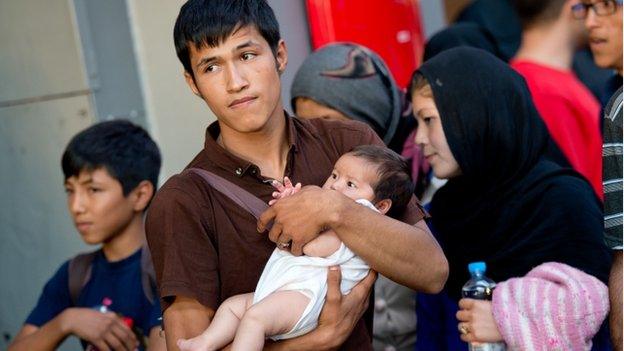Germany Pegida protests: 'Islamisation' rallies denounced
- Published
The demonstrations have provoked a debate in Germany many say can no longer be ignored
Politicians and celebrities in Germany have joined a media campaign against Pegida, a group protesting against what it sees as the "Islamisation" of Europe.
Former Chancellor Helmut Schmidt and retired footballer Oliver Bierhoff are among 80 figures to back a petition in German newspaper Bild., external
It comes after rival rallies took place across the country.
Some 18,000 people attended one anti-immigration rally in Dresden on Monday.
There have been weekly protests by the Patriotic Europeans against the Islamisation of the West (Pegida) since October.
But counter demonstrations have sprung up, with thousands marching in Berlin, Cologne, Dresden and Stuttgart.
'Hollow prejudices'
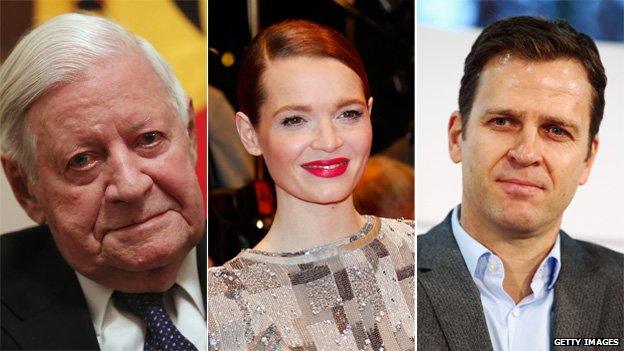
Former Chancellor Helmut Schmidt, actress Karoline Herfurth and footballer Oliver Bierhoff are among those opposing Pegida
Figures joining the Bild appeal said "'no' to xenophobia and 'yes' to diversity and tolerance," according to the newspaper.
Pegida "appeals to hollow prejudices, xenophobia and intolerance," wrote former Social Democrat Chancellor Helmut Schmidt.
"A look at our past and economic sense tells us Germany should not spurn refugees and asylum-seekers," he added.
Another former Chancellor, Gerhard Schroder, also voiced concerns, along with actress Karoline Herfurth, who appeared in The Reader, and TV presenter Thomas Gottschalk.
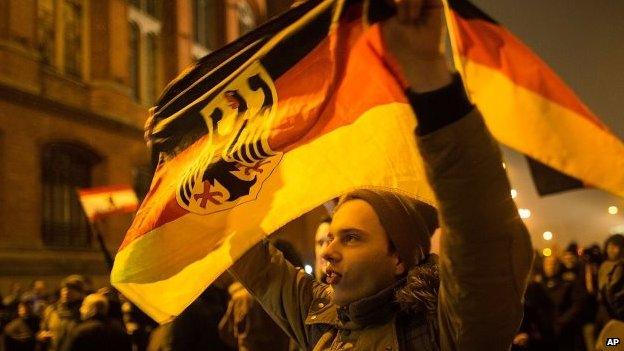
Pegida supporters were outnumbered at the Berlin march
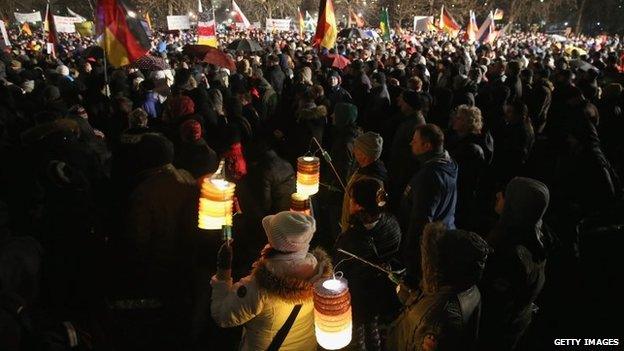
Some 18,000 supporters of Pegida attended a rally in Dresden
Police said some 5,000 counter-demonstrators blocked hundreds of Pegida supporters from marching along their planned route in Berlin on Monday.
A total of 22,000 anti-Pegida demonstrators rallied in Stuttgart, Muenster and Hamburg, according to the DPS news agency.
Lights out
In Cologne, the authorities switched off the lights of the city's cathedral as a way of warning Pegida supporters they were supporting "extremists".
"We don't think of it as a protest, but we would like to make the many conservative Christians [who support Pegida] think about what they are doing," the dean of the cathedral, Norbert Feldhoff, told the BBC.
Only about 250 Pegida supporters showed up in Cologne, compared with thousands of counter-demonstrators.

At the scene: Jenny Hill, BBC, Dresden
"Luegenpresse!" they shouted at us. "Lying press!"
As we filmed the Pegida demonstration in Dresden, our cameraman was shoved and pushed. Hands covered his lens.
Few here were willing to speak to us. No wonder perhaps - Pegida leaders tell them to ignore what they claim is a biased media.
One young man, grasping one corner of a huge German flag, did start to tell me why he was there when another man, dressed in black, shoved him to one side, told him not to speak to us and stood with his back to our camera.
Pegida takes a very dim view of the press. But then the German press has taken a very dim view of Pegida.
Conscious of their history, tolerance is highly prized here and foreigners welcomed - officially at least. A few years ago, one academic told me recently, it would have been unthinkable to express these kind of views in public.
But with immigration at a 20-year high some here say they - thanks to Pegida - now have the opportunity to express their concerns. "We're not racist, we're not xenophobes. We just want the government to know what we think."

Much of the city centre was also plunged into darkness as lights were switched off at major buildings and bridges across the Rhine, according to the news agency DPA.
"Today, there is really a democratic sign being sent and a lot of people in Cologne are expressing their opinion," said Cologne mayor Juergen Roters.
"They want to stress that we here in Cologne do not want to have anything to do with right-wing extremists and xenophobic people."
In Dresden, carmaker Volkswagen said it was also keeping its manufacturing plant dark to show that the company "stands for an open, free and democratic society."
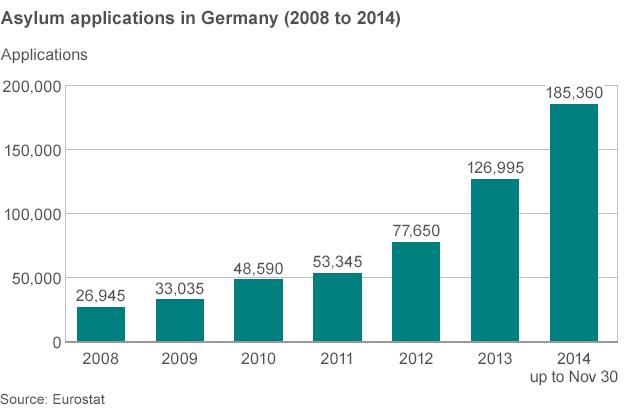
German Chancellor Angela Merkel attacked the movement in her new year speech, saying its leaders have "prejudice, coldness, even hatred in their hearts".
Kathrin Oertel, one of the main organisers of Pegida, responded in a speech at the rally in Dresden. She said that there was "political repression" in Germany once again.
"Or how would you see it when we are insulted or called racists or Nazis openly by all the political mainstream parties and media for our justified criticism of Germany's asylum-seeker policies and the non-existent immigration policy?"

What is Pegida?
Founded in Dresden by activist Lutz Bachmann in October 2014
Acronym for Patriotische Europaer Gegen die Islamisierung des Abendlandes (Patriotic Europeans Against the Islamisation of the West)
Umbrella group for German right wing, attracting support from mainstream conservatives to neo-Nazi factions and football hooligans
Holds street protests against what it sees as a dangerous rise in the influence of Islam over European countries
Claims not to be racist or xenophobic
19-point manifesto, external says the movement opposes extremism and calls for protection of Germany's Judeo-Christian culture

German journalist Sigrun Rottman said it was important to note that Dresden, compared with other German cities, had very few immigrants, and even fewer Muslim residents.
Many supporters there felt "hard done-by" and unrepresented by mainstream politics and media, she added.
A poll of just over 1,000 people carried out by Germany's Stern magazine found one in eight Germans would join an anti-Islam march if Pegida organised one near their home.
Germany receives more refugees and asylum seekers than any other EU country. Many of those have come from war-torn Syria.

Did you take part in the rallies? You can share your experience by emailing haveyoursay@bbc.co.uk.
Please include a telephone number if you are willing to be contacted by a BBC journalist.
Send your pictures and videos to yourpics@bbc.co.uk, external or text them to 61124 (UK) or +44 7624 800 100 (international). Or you can upload here, external.
- Published9 December 2014
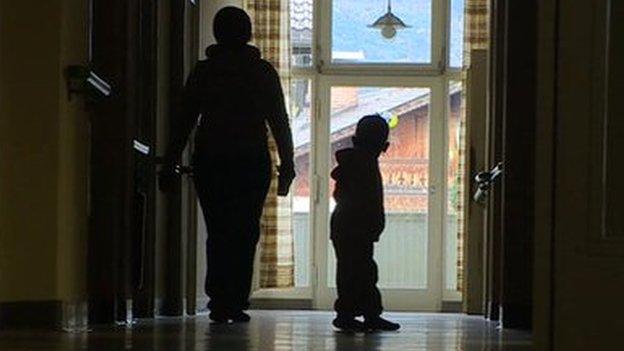
- Published24 December 2014
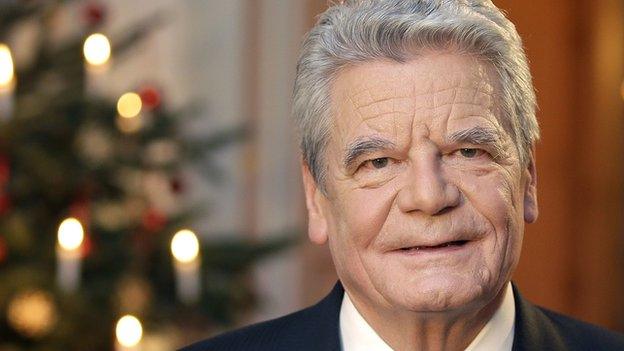
- Published3 March 2016
